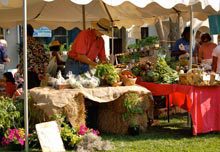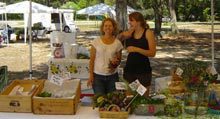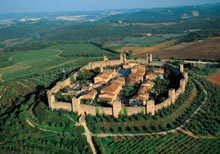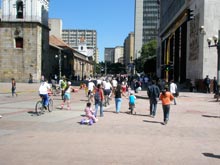
Everyone needs to eat; that is a fact of life. Food is personal. It can be fun, therapeutic, family-building, nostalgic, or just simply nourishing. Considering most of us have such a personal relationship with our food, the interesting fact is that most of what we eat is impacted by the global economy.
According to the United Nations Food and Agriculture Association, the cost of food rose internationally by 37 percent from February 2010 to April of this year. And in the United States, the Department of Labor reported that wholesale food prices rose 3.7 percent in February, the largest recorded increase in thirty-six years. These statistics are staggering. Here are a few more:
Cereal prices are up 69 percent. Meat prices are up 20 percent. Dairy prices have seen an increase of 10 percent. Prices for corn, wheat and soybeans have doubled in the past year.
Why is this happening? These price increases are largely due to the fact that the food we consume is affected by what happens all over the world: Fuel costs affect transport and the cost of fertilizer, population increase heightens demand for food, war and unrest lead to modified trade agreements and embargoes, and severe weather including heavy rain, freezes, and drought all take their toll on the global food supply.
What can we do about this in Beaufort, SC? The answer is simple: BUY LOCAL. Why is this so important, especially now? Beaufort must be able to support a system of local agriculture. As a community, Beaufort needs the farmers and local food producers who currently exist here to prosper, as well as more young people to want to farm in Beaufort. In order to incentivize these new farmers, farming here has to become a lifestyle that can sustain and support a family. Farmers have to grow what residents demand and know that the people who live here will buy their food from them on a consistent basis.
Aside from the economic impacts of purchasing locally, reliability and consistency are also heightened when buying goods closer to their point of origin. Locally-sourced foods may be more resilient to the global food cost increases because they often employ more sustainable growing and distribution practices: Pasture-raised chickens need less corn, grass-fed cows need less feed, produce that farmers grow organically doesn’t require synthetic fertilizers, less fuel is needed to run the heavy tractors and machinery of mega-industrial farms, and shipping costs are virtually non-existent. All of these characteristics make local food production less dependent on outside forces. The more Beaufort can focus its resources towards what is available locally, the less the county will be affected by ever-changing global conditions. Such focus, in turn, will engender a more sustainable community.
when buying goods closer to their point of origin. Locally-sourced foods may be more resilient to the global food cost increases because they often employ more sustainable growing and distribution practices: Pasture-raised chickens need less corn, grass-fed cows need less feed, produce that farmers grow organically doesn’t require synthetic fertilizers, less fuel is needed to run the heavy tractors and machinery of mega-industrial farms, and shipping costs are virtually non-existent. All of these characteristics make local food production less dependent on outside forces. The more Beaufort can focus its resources towards what is available locally, the less the county will be affected by ever-changing global conditions. Such focus, in turn, will engender a more sustainable community.
In order to foster this network of locally grown and produced food, Beaufort needs places to sell the food. Beaufortonians need to be ready to embrace a more localized food network. Actually, in terms of selling locations and support for locally grown food, the area is in pretty good shape already. Beaufort County has a Farmers Market nearly every day of the week. In each of these seven different weekly markets, one can find local produce, dairy, eggs, beef, bread and more. A new business called SILO (Sea Islands Local Outlet) has opened up as well, and it is aligned with this local food mentality. This new shop is a hybrid CSA (Community Supported Agriculture) co-op and online farmers market. Consumers can shop directly from a variety farmers via an online market (www.silo-beaufort.com) and then pick up their order each week.
These examples are more personalized forms of food shopping than one’s typical trip to the grocery store. They turn the purchasing of a daily necessity into an opportunity to build community relationships with the people who are actually growing and producing the food. When a farmer knows the people he or she is growing food for, that farmer is likely to put much more care into producing quality products. When a customer knows the people who are growing and producing the food that he or she purchases, there is an understanding of the work and value put into the food and a story behind product that is purchased. People enjoy being a part of the sustainable communities that these relationships help to create.
All of these models, when they are predictable and consistent, help to build the local food network between farmers and the citizens, restaurateurs and even institutions, who support them. As this system becomes solidified in our community, Beaufort will find itself more resilient in withstanding the large global problems that effect food costs. It will also become a community more cohesively bonded together by local food production.
This article was written for Lowcountry Weekly by the Congress for the New Urbanism – Carolinas Chapter. For more information, visit www.cnu.org







